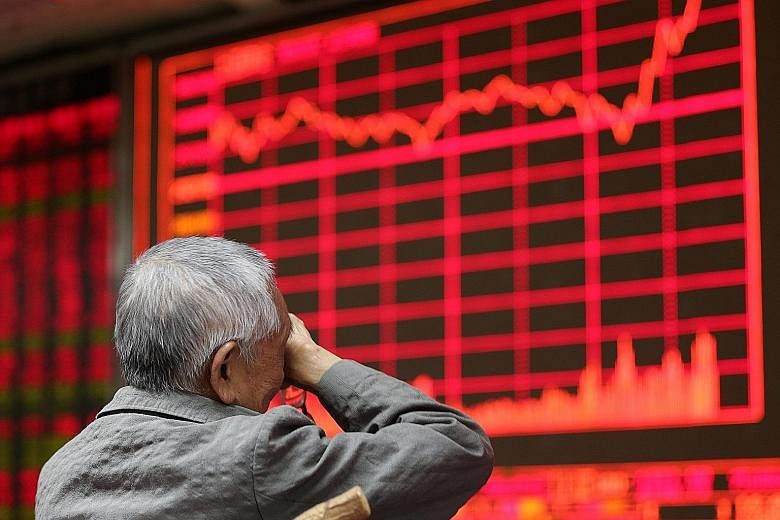The Chinese stock market rout and shock yuan devaluation are unlikely to develop into an economic crisis despite the hit China's GDP will take from slower growth in the financial services sector, UBS economists say.
They note that equities account for just 13 per cent of household wealth in China, adding that the government will likely continue to use policy tools to stabilise growth and promote more funding to the real economy.
But with more than 10 per cent of Asia-Pacific's exports going to China last year, it is not surprising that the region has felt pain from the slowdown of the world's second-largest economy.
UBS Asian currency strategist Tan Teck Leng believes the consequences of yuan devaluation are "outright negative" for Asian currencies as their exports to China, which represent 44 per cent of the region's GDP, tend to be sizeable while exports to Europe and the United States are exposed to regional competition.
"We believe central banks in the region are unlikely to stem any currency weakening against the US dollar, as disappointing growth numbers across most Asian economies and subdued inflationary pressure give them few reasons to do so," Mr Tan said.
UBS regional chief investment officer Kelvin Tay also downplayed fears that the ringgit's dramatic falls could presage another Asian financial crisis.
"Much of the current weakness in Asian currencies is due to broad-based US dollar strength. Unlike 1997, Asian central banks, especially those with limited foreign reserves, have welcomed currency weakness as a valve to lessen pressure on economic growth and rectify current account imbalances," he said.
"With the exchange rate levels fairly aligned with the region's macro fundamentals, coupled with foreign reserves and current account balances on a much stronger footing than in the late 1990s, a repeat of the Asian crisis is unlikely."
But while Singapore, Taiwan, South Korea and Thailand have fairly robust current account surpluses that could weather rising US interest rates, their currencies are highly sensitive to further yuan weakness, he said. The Singdollar, which is managed on a trade-weighted basis, will be directly affected by weakness in the yuan and other Asian currencies that track the Chinese currency.
"Investors seeking to hedge against further yuan decline might use one of these currencies as a proxy, since it is less expensive to short low-interest yielding currencies," Mr Tay said.
While most countries, including Malaysia, still have sufficient current account surpluses to
offset capital outflow, its reserves cover of "six months worth of imports is among the lowest in global emerging markets, while its coverage ratio for short-term external debt is the worst in global emerging markets".
"That is one reason why the ringgit is under attack. But even at today's levels, the ringgit has moved beyond that which is justified, based on the decline in commodity prices," Mr Tay added.
"Malaysia exports a lot of natural gas and palm oil. Those prices haven't fallen as much, yet the ringgit has fallen 20 per cent over the past 12 months. That is a bit unjustified. But the current account surplus should still remain because a weaker currency means Malaysia will import less as well."


